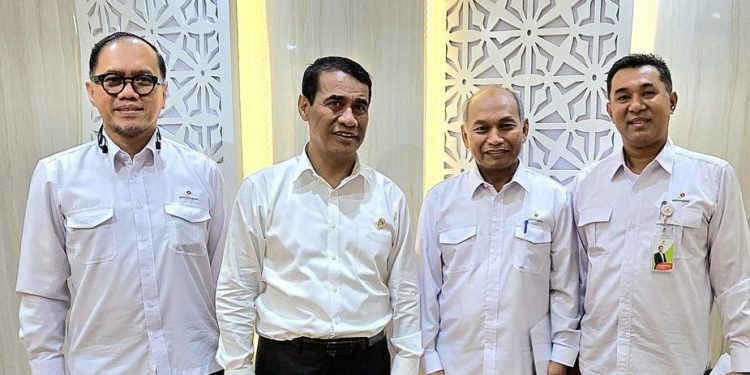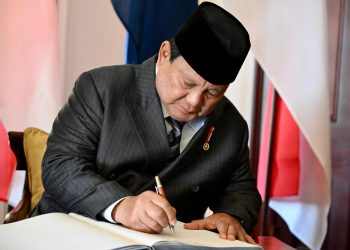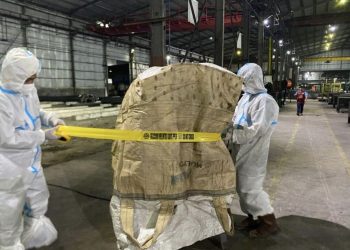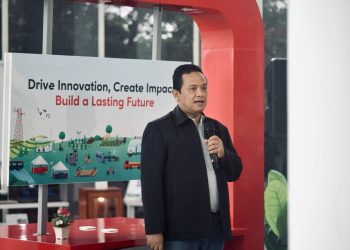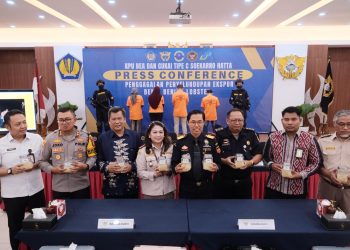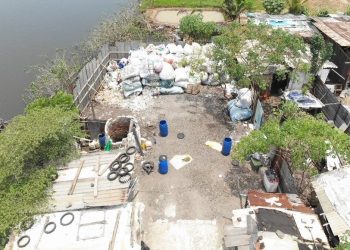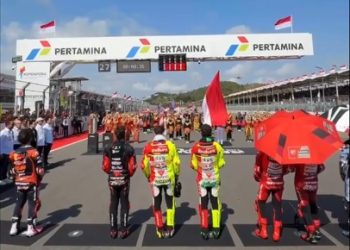Jakarta, Indonesia Sentinel — Indonesia’s Agriculture Minister, Andi Amran Sulaiman, has authorized the conversion of protected agricultural farmland for oil and gas drilling. The decisions sparks concerns over food security as the nation balances energy needs with its commitment to agricultural sustainability.
According to SKK Migas, the approval allow for the drilling of seven wells in Indramayu, West Java, and two exploratory wells in Wajo, South Sulawesi.
The converted land falls under the category of Lahan Pertanian Pangan Berkelanjutan (LP2B), or Sustainable Food Agricultural Land zones designated for long-term protection to ensure the production of staple crops and support national food sovereignty.
However, with this approvals, oil and gas contractors (Kontraktor Kerja Sama/KKKS) can now start drilling on the area.
Head of Indonesia’s upstream oil and gas regulator SKK Migas, Djoko Siswanto, argued that the farmland conversion would ultimately benefit the nation. He said repurposing protected agricultural land for upstream oil and gas operations could help boost domestic energy production and strengthen national energy security.
Djoko emphasized SKK Migas’ commitment to environmental sustainability, including efforts to maintain long-term food production. He noted that SKK Migas and its contractor partners (KKKS) have agreed to replace any converted land with new agricultural areas at least twice the size of what was used for drilling.
In Indramayu, 28.68 hectares of LP2B are being converted. In compensation, SKK Migas and its partners have pledged to revitalize and expand agricultural infrastructure across a replacement area of 114.85 hectares. Officials claim this could triple crop yields compared to the original plots.
George Nicolas Marshala Simanjuntak, SKK Migas’ Head of Formalities, added that the agency is committed to ensuring the new farmland remains productive and sustainable in the long term.
Food Sovereignty at Risk?
As Indonesia ramps up oil and gas production to bolster its energy security, the conversion of agricultural land particularly Sustainable Food Agricultural Land (LP2B) is emerging as a serious threat to national food resilience.
The ongoing conversion of protected farmland threatens Indonesia’s goal of national food self-sufficiency, a key component of President-elect Prabowo Subianto’s 2025–2029 “Asta Cita” vision.
Indramayu is one of Indonesia’s largest rice-producing regions. According to data from the Horticultural Instrument Standardization Center (PSI Hortikultura), the regency has approximately 124,442 hectares of rice fields, including 112,965 hectares of protected agricultural land (LSD) and 84,684 hectares of LP2B.
However, the conversion of farmland continues to pose a significant challenge to national food security. Rather than preserving agricultural land, authorities have allowed conversions to proceed with the compensation in the form of replacement land or the creation of new rice fields outside Java, such as in Kalimantan.
Yet, replacing land on a one-to-one basis does not guarantee the same level of agricultural productivity.
Read Also:
Housing Minister Seeks Danantara Support for Housing Projects, Rosan: Must Fullfill the Criteria!
According to Antara, Indonesia’s Minister of Agrarian Affairs and Spatial Planning and Head of the National Land Agency (ATR/BPN), Nusron Wahid, emphasized that under the implementation of sustainable agricultural land (LP2B) policies, any converted farmland must be replaced with land of equal productivity, not merely equivalent in size.
Technically irrigated rice fields like those in LP2B zones are among the country’s most fertile and efficient, making them critical to long-term food security.
The approvals come at a time when Indonesia is trying to strike a delicate balance between food and energy security. Through the LP2B program, the government aims to prevent the unchecked conversion of productive farmland to ensure stable food supplies in the future.
While the oil and gas sector continues to push for land access to boost domestic output, concerns persist that continued encroachment on farmland could undermine Indonesia’s food independence, particularly as climate change and population growth strain existing agricultural systems.
(Raidi/Agung)


